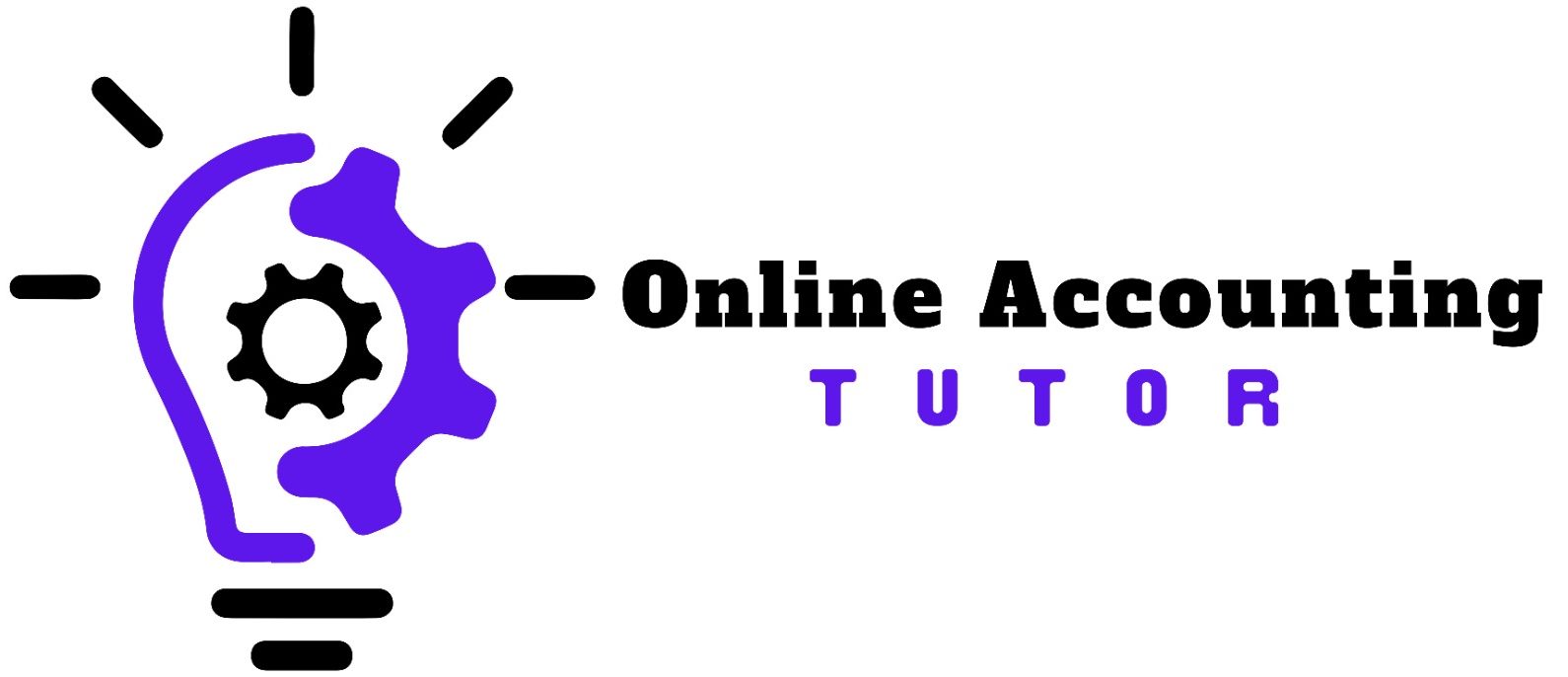- Accounting Tutor
- December 21, 2023
Welcome to the Financial accounting world, where accuracy meets strategy, and where numbers tell the story of a business’s success and it’s challenges. As a student, it’s essential to build a strong foundation in the basics of accounting. Whether you’re an aspiring accountant, a business major, or just someone curious about how financial accounting works, understanding these fundamental accounting principles is crucial. This guide will introduce you to the core principles and practices that form the foundation of accounting knowledge. From the basics of debits and credits to the intricacies of financial statements and beyond, we’ll cover everything you need to grasp the essentials of accounting and set the stage for more advanced studies. Let’s go through the critical accounting basics every student should know.
 Basic Principles and Concepts
Basic Principles and Concepts
Understanding the Accounting Equation
Learn how assets, liabilities, and equity form the cornerstone of financial accounting.
Double-Entry System
Grasp the fundamental system that maintains the balance in financial records. The double-entry system is a fundamental concept in accounting that ensures accuracy and consistency in financial records. It’s based on a simple principle: for every transaction, at least two accounts are affected.
Differences Between Accrual and Cash Accounting
Discover the nuances of these two fundamental accounting methods.
Applying GAAP Principles
Understand the rules that govern financial reporting in the U.S.
Grasping IFRS Standards
Explore the global accounting standards for international finance.
Ethics in Accounting
Learn why ethical practices are crucial in financial reporting. Ethics in accounting is not just about adherence to rules and regulations; it’s about fostering trust and integrity in financial accounting and reporting.
Interpreting Financial Statements
Discover how to read and analyze balance sheets and income statements. Understanding and interpreting financial statements is a crucial skill for anyone in the field of business, finance, or accounting. Learn how to read and analyze the primary financial statements: the income statement, statement of comprehensive income, balance sheet, statement of stockholders’ equity, and statement of cash flows.
Navigating the Chart of Accounts
Understand the framework for organizing financial transactions. You will learn how to setup the chart of accounts of any company.
Debits and Credits Concept
Learn the basics of debits and credits in various account types.
Journal Entries Fundamentals
Master the art of recording transactions in the general journal.
The Process of Posting to The General Ledger
Discover how entries are transferred from the journal to the general ledger.
Preparing a Trial Balance
Learn to prepare a trial balance to verify the ledger’s accuracy.
Making Adjusting Entries
Understand the importance of making end-of-period adjustments.
Understanding Closing Entries
Learn how to close temporary accounts at the end of an accounting period.
The Role of Reversing Entries
Discover when and why reversing entries are used in accounting.
Detailed Examination of Financial Statements
Analyzing the Balance Sheet
Grasp the techniques to analyze a company’s financial position.
Breaking Down the Income Statement
Learn to interpret revenues, expenses, and net income.
Statement of Retained Earnings Insights
Understand how this statement reflects profit distribution decisions.
Cash Flow Statement
Master the differences between operating, investing, and financing cash flows.
Liquidity and Solvency Analysis Techniques
Learn to assess a company’s ability to meet short and long-term obligations.
Understanding Profitability Ratios
Get to know how to calculate and interpret key profitability metrics.
Efficiency Ratios Explained
Understand how effectively a company uses its assets and liabilities.
Leverage Ratios: A Deep Dive
Learn to analyze a company’s debt levels relative to its equity and assets.
Market Prospect Ratios Insights
Understand key indicators like EPS and P/E ratio.
Comparative Financial Analysis Skills
Learn to compare financial data using horizontal and vertical analysis.
Advanced Accounting Topics
Inventory Valuation Methods Overview
Discover the differences between FIFO, LIFO, and weighted-average methods.
Understanding Different Depreciation Methods
Learn how to calculate depreciation using various methods.
Accounting for Intangible Assets
Explore how to record assets like patents and copyrights.
Tax Accounting Fundamentals
Understand the basics of accounting for income taxes.
Handling Contingencies and Provisions
Learn to account for uncertain future events.
Lease Accounting Essentials
Distinguish between operating and finance leases.
Revenue Recognition Principles
Understand when and how revenue should be recognized.
Expense Recognition Techniques
Learn the proper timing for recognizing various expenses.
Equity Transactions Accounting
Understand the accounting for stock issuances and dividends.
Bond Accounting Basics
Learn about the issuance and retirement of bonds payable.
Identifying Financial Statement Fraud
Recognize the signs of fraudulent financial reporting.
Accounting for Mergers and Acquisitions
Understand how business combinations are accounted for.
Managing Foreign Currency Transactions
Learn about the effects of exchange rate fluctuations.
Governmental Accounting Overview
Explore the unique aspects of accounting for public entities.
Non-Profit Accounting Essentials
Understand the specific accounting needs of non-profit organizations.
Practical Application and Analysis
Mastering Ratio Analysis
Learn how to interpret various financial ratios.
The Art of Bank Reconciliation
Discover how to reconcile a company’s bank statements.
Basics of Budgeting
Understand the process of creating and managing budgets.
Cost-Volume-Profit Analysis Techniques
Learn how changes in costs and volume affect profits.
Variance Analysis Skills
Discover how to analyze deviations in budgeted and actual figures.
Understanding Break-Even Analysis
Learn to calculate the break-even point for businesses.
Decision-Making Tools in Accounting
Use accounting information for strategic decision-making.
Ethical Decision-Making in Accounting
Understand the role of ethics in financial decision-making.
Embracing Technology in Accounting
Learn about the impact of software and technology in accounting.
Exploring Accounting Career Opportunities
Discover various career paths available in accounting.
Exam Preparation Strategies
Effective Time Management for Exams
Learn strategies for managing your time effectively during exams.
Utilizing Past Exam Papers
Understand the importance of practicing with past papers.
Exam Format Familiarization
Get to know the structure of accounting exams.
Crafting a Comprehensive Study Plan
Learn how to create a study schedule that covers all topics.
Benefits of Study Groups
Discover the advantages of collaborative learning.
Stress Management for Students
Learn techniques to manage stress related to exams.
Revision Strategies for Accounting
Explore effective ways to revise and retain accounting concepts.
Clarifying Doubts Before Exams
Understand the importance of seeking clarification on confusing topics.
Maintaining Healthy Study Habits
Learn to balance study and rest for optimum performance.
Building Confidence for Exams
Develop self-assurance in your accounting knowledge and skills.
Advanced Financial Topics
Cash vs. Accrual Accounting Differences
Delve into how these accounting methods impact financial reporting.
Consolidated Financial Statements Preparation
Learn the technique of combining financial data from multiple entities.
Calculating Earnings Per Share
Understand the process and significance of calculating EPS.
Fair Value Accounting Principles
Grasp the concept of fair value and its application in modern accounting.
Fundamentals of Pension Accounting
Learn the basics of how to account for pension plans and their financial impact.
Time Value of Money Concepts
Explore how present and future values influence financial decision-making.
Accounting for Financial Derivatives
Understand the complex world of derivatives and their accounting treatment.
Segment Reporting Requirements
Learn how to report financial results for different business segments.
Accounting for Stock-based Compensation
Grasp the principles of recording employee stock options and awards.
Corporate Social Responsibility in Accounting
Understand the importance and methods of reporting a company’s social impact.
Practical Skills and Application
Analyzing Business Transactions
Learn how to identify and record various business transactions accurately.
Effective Inventory Management Techniques
Understand different methods of inventory valuation and management.
Capital Budgeting Methods
Explore techniques like NPV and IRR for making investment decisions.
Specialized Accounting for Startups
Learn accounting practices uniquely tailored for startup businesses.
Detecting and Preventing Fraud
Understand the techniques for identifying and preventing accounting fraud.
Leveraging Financial Accounting Software
Discover how software tools can enhance accounting efficiency and accuracy.
Deep Dive into Financial Ratios
Explore the calculation and interpretation of key financial ratios.
Audit Preparation Techniques
Learn how to prepare for and facilitate an efficient audit process.
Sustainability Accounting Practices
Understand how to account for and report on sustainability initiatives.
Navigating International Accounting
Explore the differences between GAAP and IFRS accounting standards.
Industry-Specific Accounting
Banking and Financial Services Accounting
Discover the unique accounting practices in the banking sector.
Healthcare Industry Accounting
Learn about the financial complexities in the healthcare sector.
Construction Industry Accounting
Understand the unique aspects of financial reporting in construction.
Retail Sector Accounting Challenges
Explore inventory and sales accounting in the retail industry.
Manufacturing Accounting Practices
Learn about cost accounting in the manufacturing setting.
Real Estate Accounting Basics
Discover how to account for real estate transactions and investments.
Nonprofit Organization Accounting
Learn the differences in financial reporting for nonprofit entities.
Government Sector Accounting
Explore the specialized accounting practices for government organizations.
Education Sector Financial Management
Understand the accounting and financial reporting in educational institutions.
Accounting in the Hospitality Industry
Learn the financial management practices in hotels and restaurants.
Specialized Accounting Areas
Forensic Accounting Techniques
Explore the use of accounting in legal matters and investigations.
Environmental Accounting Practices
Learn how to account for environmental costs and initiatives.
Insurance Industry Accounting
Understand the specific accounting practices for insurance companies.
Agricultural Accounting Essentials
Discover how to manage finances in the farming and agriculture sector.
Transportation and Logistics Financial Management
Learn about accounting practices in the transportation industry.
Oil and Gas Sector Accounting
Explore the financial complexities of the oil and gas industry.
Media and Entertainment Financial Reporting
Understand revenue, royalties, and production cost accounting in this sector.
Technology Sector Financial Strategies
Learn about the unique financial challenges in the technology industry.
Blockchain and Cryptocurrency Accounting
Discover the accounting implications of these emerging technologies.
Project Accounting Methods
Learn how to manage and report finances for specific business projects.
Final Exam Preparation Tips
Effective Memorization Techniques
Master strategies for memorizing key accounting formulas and concepts.
Enhancing Critical Thinking Skills
Develop the ability to solve complex accounting problems logically.
Utilizing Accounting Simulations
Apply your knowledge in simulated scenarios to reinforce learning.
Maximizing Study Aids
Discover how to use study guides and flashcards effectively.
Managing Time During Exams
Learn techniques for efficient time management in the examination hall.
Crafting Strong Essay Answers
Master the art of writing insightful and comprehensive essay responses.
Overcoming Exam Anxiety
Develop strategies to stay calm and focused during your accounting exam.
Post-Exam Analysis and Learning
Learn to review your exam performance for continuous improvement.
Staying Updated with Accounting Trends
Keep abreast of the latest trends and developments in the accounting field.
Developing a Study Schedule
Create an effective and realistic study plan for your accounting exam.
Beyond the Exam
Planning an Accounting Career
Explore various career opportunities available in the field of accounting.
Networking for Professional Growth
Utilize networking for career development in the accounting industry.
Continuing Education Opportunities
Discover pathways for further specialization in accounting.
Accounting Certifications and Licenses
Learn about various certifications and their benefits in your accounting career.
Transitioning to Professional Practice
Prepare for the shift from academic accounting to professional application.
Upholding Ethical Standards
Emphasize the importance of maintaining ethics in professional practice.
Maintaining Work-Life Balance
Develop strategies for a balanced lifestyle in the demanding accounting field.
Embracing Technological Advances
Stay ahead by integrating the latest technology in your accounting practices.
Exploring International Opportunities
Discover the challenges and opportunities in global accounting careers.
Commitment to Lifelong Learning
Understand the importance of ongoing education in the ever-evolving accounting industry.
Accounting Excellence Awaits
As we conclude our journey through the essentials of accounting, remember that these foundational concepts are your gateway to a deeper understanding and mastery of the field. These critical basics are not just academic subjects; they’re the building blocks for any career involving finance and business decision-making. By familiarizing yourself with these principles, you’ve taken a significant step towards becoming proficient in accounting, whether for professional development or personal knowledge. Keep exploring, practicing, and questioning, as each step forward in this field brings new insights and opportunities. Best of luck as you continue to navigate the fascinating world of accounting!
"Are you tired of struggling in accounting class? Let us make accounting easy and enjoyable for you."







